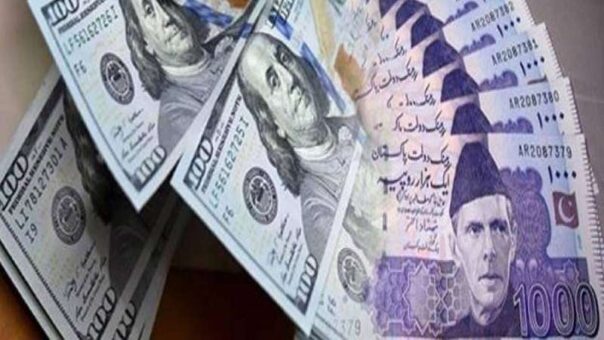In the bustling automobile market of Pakistan, negotiating the prices of used cars has become a skill that both buyers and sellers strive to master. With a plethora of factors contributing to the valuation of pre-owned vehicles, the task of determining the right price often resembles a complex puzzle.
(more…)Category: OPINIONS
-

Pakistan’s Population: Ensuring A Brighter Future For All
Pakistan’s population experts and leading government officials are set to gather in Islamabad this week on the 24th and 25th of May, for a learning event organized by Palladium Pakistan under DAFPAK-PSSD in collaboration with UNFPA, PSI, MSS, DKT International, and M&C Saatchi and in partnership with MoNHSR&C Islamabad, and provincial Health and Population Welfare Departments of Punjab, Sindh, and KP.
(more…) -

Tax Laws Allow Arrest Taxpayers in Pakistan for Default
Tax laws in Pakistan have allowed authorities to arrest defaulting taxpayers. This power has is granted under the Income Tax Ordinance, of 2001.
(more…) -

Understanding the Basics of Income from Property under Pakistan Tax Laws
Income tax is an important source of revenue for any country, and Pakistan is no exception. The Income Tax Ordinance, 2001, is the main legislation governing the taxation of income in Pakistan.
(more…) -

Tax Treatment of Foreign Source Income for Residents in Pakistan
Pakistan is a country that attracts a significant amount of foreign investment and remittance flows. As a result, there are many residents in Pakistan who have foreign-source income.
(more…) -

Understanding Currency Conversion for Tax Purposes in Pakistan
When it comes to tax assessment in Pakistan, it’s important to understand the rules around currency conversion.
(more…) -

Determining Property Tax in Pakistan: Understanding Fair Market Value
Property taxes are an important source of revenue for governments all over the world, and Pakistan is no exception.
(more…) -

Rupee devaluation main culprit behind surge in petroleum prices
Massive Pakistani Rupee (PKR) depreciation against the US dollar is main culprit behind significant surge in petroleum prices in the country.
(more…) -

Climate Change: A pandemic we must collectively address now
(The article is written by Fida Kibbi, Vice President and Head of Marketing, Communications and Sustainability & Corporate Responsibility at Ericsson Middle East and Africa)
During COP27, that took place in Egypt, world leaders have grappled over what must be done to curb global warming. Seven years ago, world leaders signed an international treaty to limit global warming to well below 1.5°C. Nonetheless, efforts remain insufficient to limit global temperature rise to 1.5 degrees Celsius by the end of the century.
The ramifications and severity of climate change vary depending on where you live. In Africa, climate-related problems have been significant including the current floods in Nigeria and droughts in Somalia, Ethiopia, and Kenya as few examples to mention.
Climate change needs to be seen as a critical matter and dealt with in the same manner as a pandemic. The actions we take today will determine the scale and impact of the ramifications. In treating it as a pandemic, we must remember some of the lessons and act accordingly. A key lesson is that collaboration is key to making a difference and it is an ecosystem driven approach.
An Ecosystem Concerted and Sustained Approach
a. Governments: Define policies that will help drive sustainability and reduce activities that endanger the planet. Regulations in various sectors will ensure adherence and create actionable outcomes.
b. Organizations: Organization, no matter how big or small, define how their operations and value chains impact climate change and what they can do to mitigate the effects. At Ericsson, we have prioritized the elimination of sources of emissions within our operation and value chain which follows a 1.5°C reduction trajectory as part of our Net Zero target for 2040. Organizations need to take a bold step in investing in digitalization. This will help reduce carbon emission as well as drive efficiency in every sector of the economy.
c. Individuals: Individual responsibility and dedication are critical in addressing climate change concerns. Decisions such as choosing to invest pension funds in organizations that are environmentally responsible will put pressure on providers to help fight the climate crisis. Cutting down on business travel is another good example of how companies and individuals can make an impact on reducing carbon emissions.
Leverage Technology and Innovations
Technology can play a major role in supporting global climate action. These could include solutions that help various sectors manage their emissions and data driven insights that can help make informed decisions affecting climate. At Ericsson, our 5G technology is supporting industrial sectors, such as energy, agriculture, manufacturing, and transportation, towards a low-carbon economy.
Private and Public Partnership and Commitment
Partnerships between the private and public sectors with a common goal and purpose can help advance climate action, in line with Sustainable Development Goal (SDG) 17 Ericsson has partnered with stakeholders, including governments, agencies, the international community, and research institutions, in our various markets, to find lasting solutions to climate change. Ericsson contributed to the Exponential Climate Action Roadmap report launched at the Global Climate Action Summit 2018. The report shows the potential for all sectors to halve greenhouse gas emissions by around 2030. Across Africa, we partner with our customers to find innovative solutions that address environmental sustainability.
Anticipate Multidimensional Impact
Similar to the pandemic, climate change has a multidimensional impact. It has the power to derail the progress we have made in sustainable development, further deepen the economic divide, and harshly affect the marginalized in society. Understanding the worst-case scenario will help us address the challenge effectively.
In summary, the fight against climate change cannot be won alone. It will require collaboration of the entire ecosystem while the use of technology and innovation across all sectors of society, along with the proper policy direction and specific solutions, to achieve a 1.5°C future target. We need to think of climate change as a looming pandemic. Our individual actions today and the interventions by all stakeholders will determine its scale and impact. We have the power to drive this change, and it must act with urgency!
-

Petrol to become more precious than gold
People of Pakistan are in shock after back to back increase in petroleum prices up to 50.71 per cent by the government. The coalition government led by PML-N in a span of one week jacked up the prices of petroleum products first on May 26, 2022 and second on June 02, 2022. Petrol, which is the basic commodity for all the households, has been increased by Rs60 per liter to Rs209.86 from Rs149.86.
READ MORE: High inflation leads to street crime
The fluctuation in oil prices directly impact the rates of essential commodities. Considering the sharp rise in petrol price the people will witness a storm of price hike of all the essential and non-essential items in coming days.
Besides, the rise in prices of gas and electricity also added the miseries to the people’s life. No one can image the quantum of inflationary pressure in coming days. But it is certain that it will play havoc.
READ MORE: Prices of essential items rise by 20% on first POL rate jump
The chairman of Pakistan Tehreek I Insaaf, Imran Khan, who was removed from the executive post of the prime minister on April 10, 2022 through a no-confidence motion, has lambasted the present government of squeezing people, who are already bearing the brunt of inflation.
“The PDM government has increased burden on public by Rs.900 billion and price hike in all of the basic necessities. Furthermore increase in electricity price to Rs.8 has shocked all people,” former Prime Minister Imran Khan said in a Tweet.
The former prime minister also said the inflation would reach to 75-year high after increasing by 30 per cent.
The scribe talked to many people about the inflation, it is consensus that massive price hike was imminent and it would create chaos and would lead to street crimes in the country.
The affordability issue will result in more poverty and people may start snatching even the eatables to feed their children. The rise in utility prices would also affect manufacturing and industrial activities. This will result in mass job cutting. This will also give a rise to street crimes.
READ MORE: Pakistan hikes petroleum prices up to 50.71% in a week
After the first rise in petroleum prices on May 26, 2026, the inflation based on Sensitive Price Indicator (SPI) recorded a significant rise by 20 percent Year on Year (YoY) by week ended June 02. 2022. The prices of essential items will further inflate as the impact of second oil price hike will pass on to the consumers.
Fomrer Finance Minister Shaukat Tarin said: “I see inflation moving towards 25-30 per cent. PDM used to blame us for 12 per cent. They are crushing the poor people of this country. Should resign and call for fresh elections.”
(By Syed Hamza Shahnawaz: The writer is a student of Lower Cambridge at St. Patrick’s High School, Karachi. He is regular contributor at PkRevenue.com)
